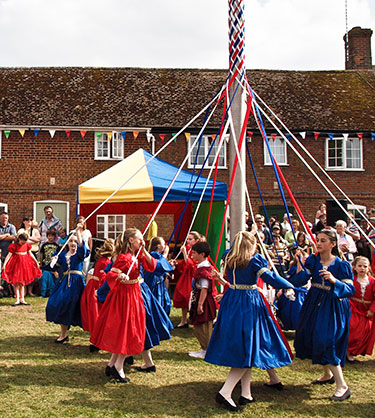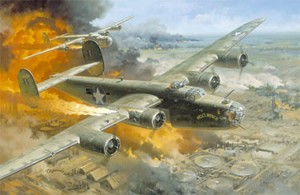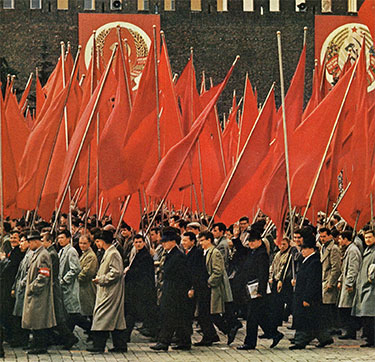May Day, Mayday, M’aider!
It doesn’t quite feel like May yet, despite today being May Day. By my own personal and internal calendar, April should have provided at least one sunny weekend day in the 70s to signal the great rebirth of the year. I’m still waiting.
But May Day is still a big deal all around the world, most famously as the day for workers to celebrate. The former Soviet Union raised May Day celebrations to a high art form, combining socialist fervor with nationalism, and military pizzazz. But the holiday is still held throughout Europe, minus the missiles, and sporting a little less red.
The holiday has its origins in pre-Christian spring celebrations of fertility and renewal. The most famous holdover of that tradition is the maypole dance, usually performed by young maidens, or their modern equivalent. The picture below is from England in 2009, but it probably wouldn’t have looked much different in 1009.

Maypole Dancing at the Downton Cuckoo Festival in Wiltshire. Photo: Anguskirk, Creative Commons, some rights reserved
Renewal sounds pretty good about right now; it’s been a long winter. But one thing I’ve noticed is that spring starts with a bang, and life can go from zero to sixty in nothing flat.
It’s been like that here at NCPR, jumping out of fundraiser into two big news series, powering forward on redesign of the website, and a similar restructuring of how we work on the digital side of the shop.
And everybody seems to have a new project up their sleeve. We have a live broadcast of a new play in the works for next week.
And earlier today, we had a passel of students into the studio to talk about their reading of “A Tale for the Time Being” by Ruth Ozeki. (Look for that tomorrow)
And about an hour ago, short fiction author George Saunders was in the studio for an interview before his talk at SUNY Canton tonight. And zip, zip–that’s already up on the website.
Such haste and fury brings to mind the other meaning of Mayday–m’aider–“Help me!” in French.

“Hell’s Wench.” Artwork: The National Guard, Creative Commons, some rights reserved
One legend has it that this distress call originated with the Lafayette Escadrille, the volunteer corps of American airman who entered WWI one century ago as part of the French Army, well before the U.S. entered the fray.
Others say it was coined in 1923 for use by air traffic between England in France. But it was certainly in widespread use by aviators in WWII and after, as countless Hollywood war movies attest.
In any event, whenever my own life gets a little fraught, or the task at hand gets a little out of hand, I offer an under-my-breath Mayday to the universe–whoever is receiving on that wavelength. I picture myself trailing black smoke, wind whistling through a cracked canopy, limping toward the White Cliffs of Dover. Mayday!
Tags: listeningpost









More of an FYI: Nazi Germany and Fascist Italy also brought May Day celebrations to an art form since they, too, were socialist regimes. Mayday as a distress call would have been useless to the Lafayette Escadrille or any other WW I or pioneer aviator as there were no ariel radio communications yet.
Hi David–
The Nazis and the fascists did celebrate May Day in a big way, too, but fortunately they didn’t get the 70+ years the Soviets had to perfect the form.
And you’re right about the radio-free WWI airmen–though I suppose they could have flown low enough to yell for help–but further reading makes the 1923 birth date of Mayday! look pretty solid, and it was ratified in 1929 as an international distress convention. A few years makes a big difference in technology.